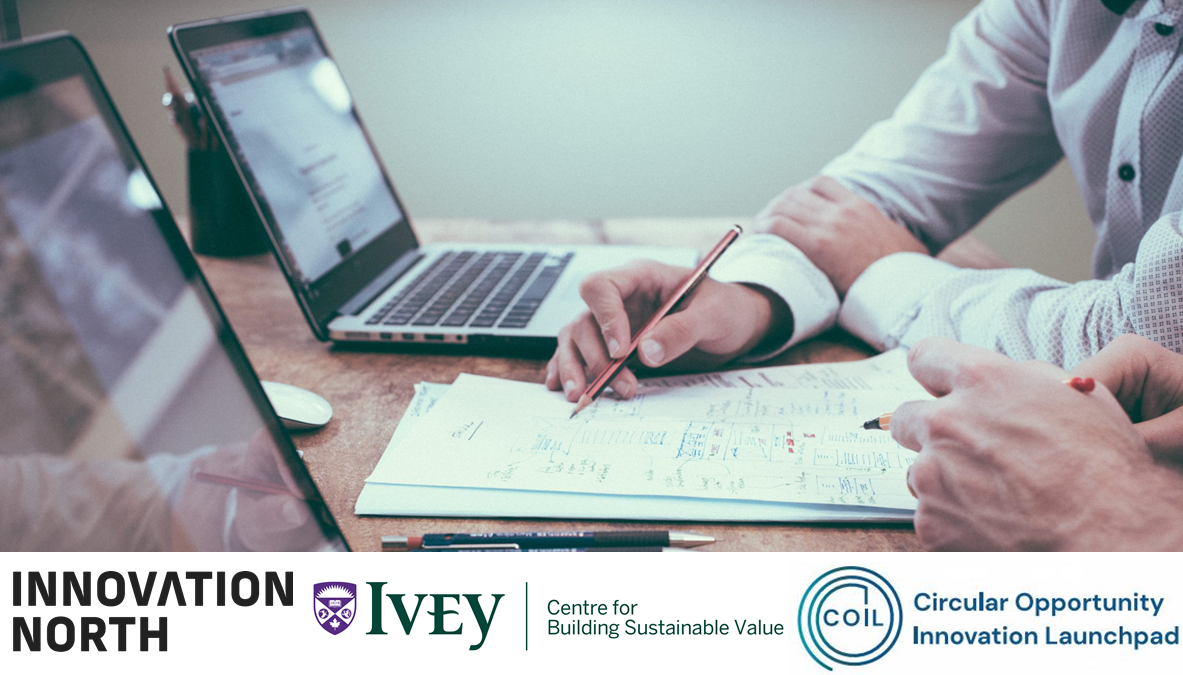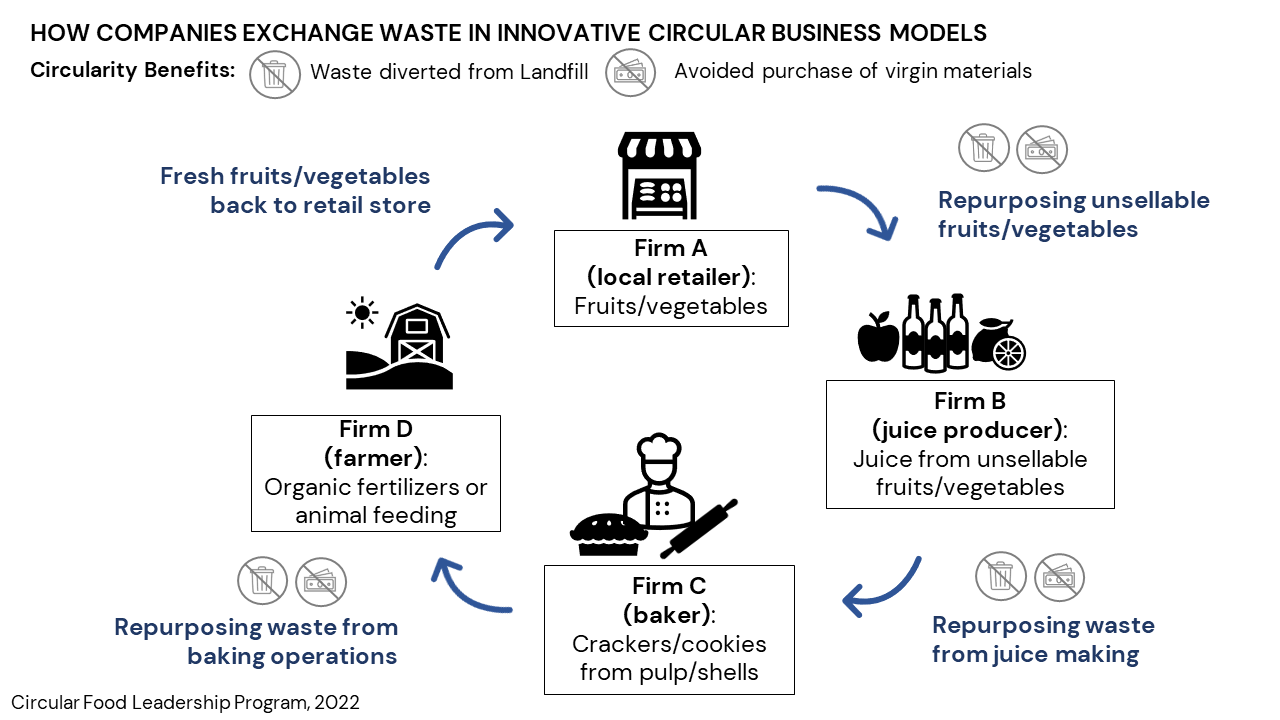Circular Leadership Program
Business Sustainability and Circularity Training

Around the world, businesses are finding innovative ways to turn surplus and by-products materials into new revenue using upcycling strategies, part of what’s known as the “circular economy”. Upcycling strategies help mitigate climate change and reduce environmental harm, while turning waste streams into new products, collaborations and value streams.
Circular Leadership Program brings together systems thinking and practical business modeling to help participants identify opportunities and embed circularity within their businesses’ day-to-day operations, logistics and strategy.
Applications for Circular Leadership Program are now closed. Please contact [email protected] for further details.
Benefits to your business:
Businesses can expect to:
- Develop a circular solution tailored to your business’s needs, with potential prototype funding through COIL
- Explore innovative revenue and cost-saving opportunities
- Learn leading edge sustainable business growth strategies and tools from Ivey faculty
- Pitch for prototype funding to implement your solution (by invitation)
- Network and collaborate with value-aligned innovative businesses
- Receive the “Circular Leadership Program” certificate from Ivey on completion
Program Details
Between January – April 2023, participants will be guided through a structured innovation process to identify challenges, ideate circular business solutions, and pitch for prototype funding.
- Understand what systems thinking is and why it is important
- Discover how systems thinking facilitates circular innovation process
- Apply systems thinking in addressing your organization’s challenges pertaining to circular economy
- Engage in diverse learning experiences such as simulations, lectures, group discussions, and applied research assignments
- Equip with new tools such as life-cycle assessment (LCA)
- Learn from success stories and business case studies
Program Requirements
- An estimated 50-60 hour commitment to attend two in person events, two virtual events, and complete assigned learning activities in between sessions*
- $399 one-time registration fee**
*Program activities will include online and in-person components. Details will be announced in December and based on participant preferences and availability.”
**Applicants are encouraged to flag financial barriers in their applications; bursaries are available.
Eligibility
- Businesses of all sizes and from all sectors and industries within southern Ontario and Quebec are encouraged to apply.
- A sense of curiosity about circularity and commitment to make sustainable transitions within the business where possible.
- Ability to attend 4 in-person half-day workshops and dedicate an estimated total of 50-60 hours from January – June 2023.*
*It is recommended that applicants are someone who knows their business holistically, has strong internal legitimacy and that is close to its day-to-day operations. Depending on the size of the company, this may be a plant manager, operations or business development VP, CEO, etc. Participants will be responsible for attending workshops, executing internal organization activities in between, and submitting a final document on the emerging business idea/solution.
Note that CLP is designed to help organizations explore and develop new circular products, services or processes. Organizations with existing projects can visit www.coil.eco for funding and support dedicated to scaling.
What is the circular economy?
The circular economy is a model that seeks to eliminates the concept of waste. Circular economies are designed so that the waste of one economic activity is the feedstock for the next economic activity.
The image below shows how your food business could participate in a circular collaboration. Learn more about the circular economy here.

Any Questions?
Want to learn more about this program and if it could be a fit for your business? Send us a question and we’ll get back to you shortly.

